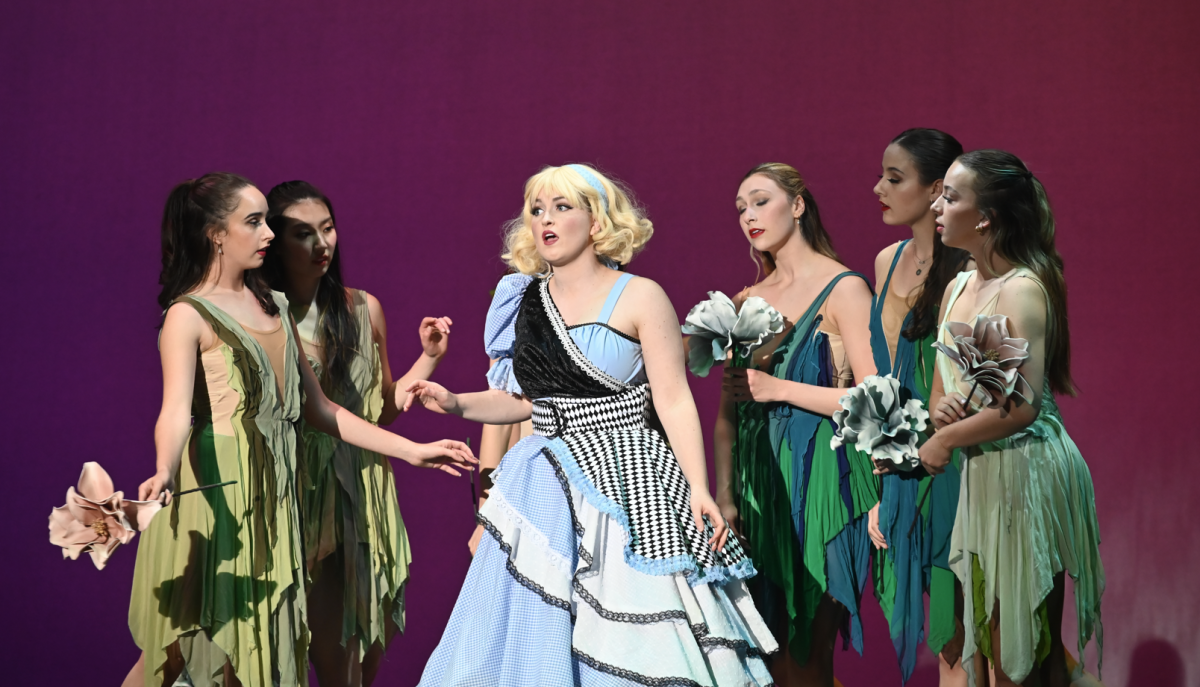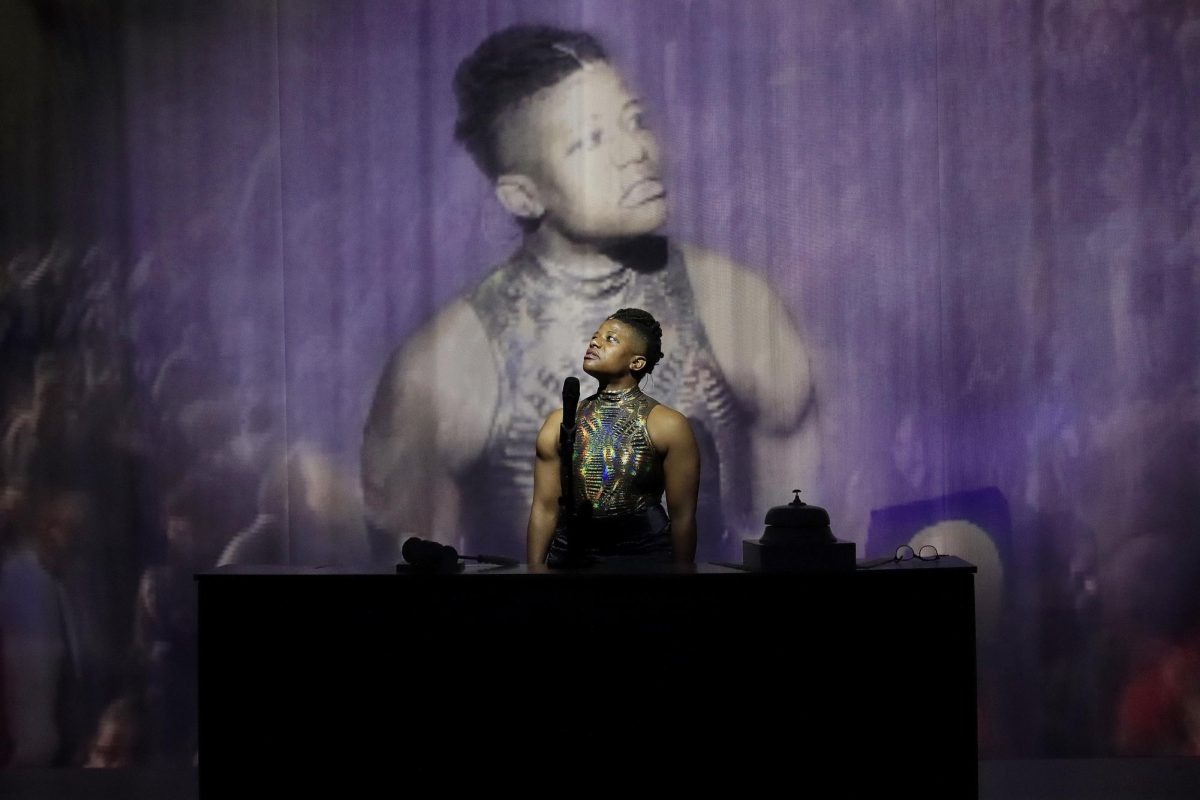In her book “Good and Mad: The Revolutionary Power of Women’s Anger,” journalist Rebecca Traister argues that female rage can have great potential to inspire political change and alter the course of history. Her thesis is especially relevant in a year when issues of sexual violence, misogyny and male privilege have been constant fixtures in the news. We are in the middle of a reckoning, and many women have responded, despite long-standing social stigmas, with unbridled rage.
A particularly feminine brand of anger runs through the University of Utah’s production of “Big Love,” a galling, thought-provoking play by Charles L. Mee. A modern retelling of the ancient Greek play “The Suppliants,” “Big Love” opens as 50 distraught sisters arrive on the coast of Italy. The sisters (only six actresses are actually seen onstage) are escaping from their home country of Greece, where fifty of their male cousins have bound them to a marriage contract without their consent. This is particularly appalling to Thyona (Morgan Werder), a misandrist who views all of the cousins as predators. Meanwhile, Olympia (a delightful Mary Nikols) thinks she might like to settle down with a man, and Lydia (Allison Billmeyer) is unsure of how to approach their precarious situation. Though the women are able to find temporary refuge with a family in Greece, the cousins quickly track them down, and the women are forced to evaluate how they wish to proceed in a world that offers them few options.
This summary does not accurately convey how truly strange “Big Love” can be, nor does it betray the many twists and turns that the narrative takes in its relatively short running time. Watching “Big Love” requires a willingness to suspend disbelief and accept nonlinear storytelling that goes beyond strict realism. The play is also unafraid to experiment with different tones, taking sharp turns from camp to slapstick to political allegory. Director Robert Scott Smith deserves credit for making these transitions not only understandable but cohesive.
From scene to scene, this production experiments with a variety of styles and forms. Some scenes are influenced by modern dance, and others are scored to a wide range of pop songs. (The selection, which was altered from the original script by Smith, is shrewd, often adding rich irony to already loaded dialogue). In a pair of particularly provocative scenes, the male and female characters separately express their thoughts on gender, sex and love. Their statements overlap and loop, becoming an eerie chorus. The dialogue at times devolves into trashing movements and primal yells. These scenes serve as a kind of Rorschach test, meant to challenge audiences while evoking a wide range of responses.
The potency of “Big Love” is aided by a talented cast, who all lean into a difficult script. This play requires emotional (and sometimes physical) nakedness, and the ensemble’s raw vulnerability is consistently impactful. All of the female actors are wonderful, especially Werder, who ably leads the play in a moving, ferocious performance. Nonbinary performer Jacob Weitlauf is another highlight in a gender-defying performance, adding a distinctively queer edge to the play’s intentionally heteronormative meditations on gender and sex. All of the actors’ work is deceptively straightforward — even when the play does arch, they take their characters seriously, grounding bizarre moments with genuine emotion.
“Big Love” is decidedly not for everyone. The play constantly toes the line of pretension, and in some moments it high jumps over the line while thumbing its nose. The play also features plenty of explicit content, including nudity, sexual references, strong language, violence and possibly triggering references to sexual assault. Still, for audiences willing to try something a little more experimental, “Big Love” is a raucously entertaining comedy sure to inspire spirited debates. Few shows, college productions or otherwise, possess this show’s clear vision.
This play is set in the present day, and Smith occasionally adds potent references to current events. However, the narrative feels intentionally divorced from any single time period or political context. Instead, “Big Love” comments on gender dynamics that have defined society since Aeschylus wrote, “The Suppliants” in 470 BCE. “Big Love” is unblinking in its depiction of an ugly patriarchal society. Yet something in its unbridled anger feels a little bit like liberation.
“Big Love” is playing at the Babcock Theatre, with performances Nov. 11 and Nov. 15-18. Performances are at 7:30 p.m. with additional matinees on Nov. 11, 17 and 18 at 2 p.m. Tickets are free with a U of U student ID. For more information visit theatre.utah.edu.


















